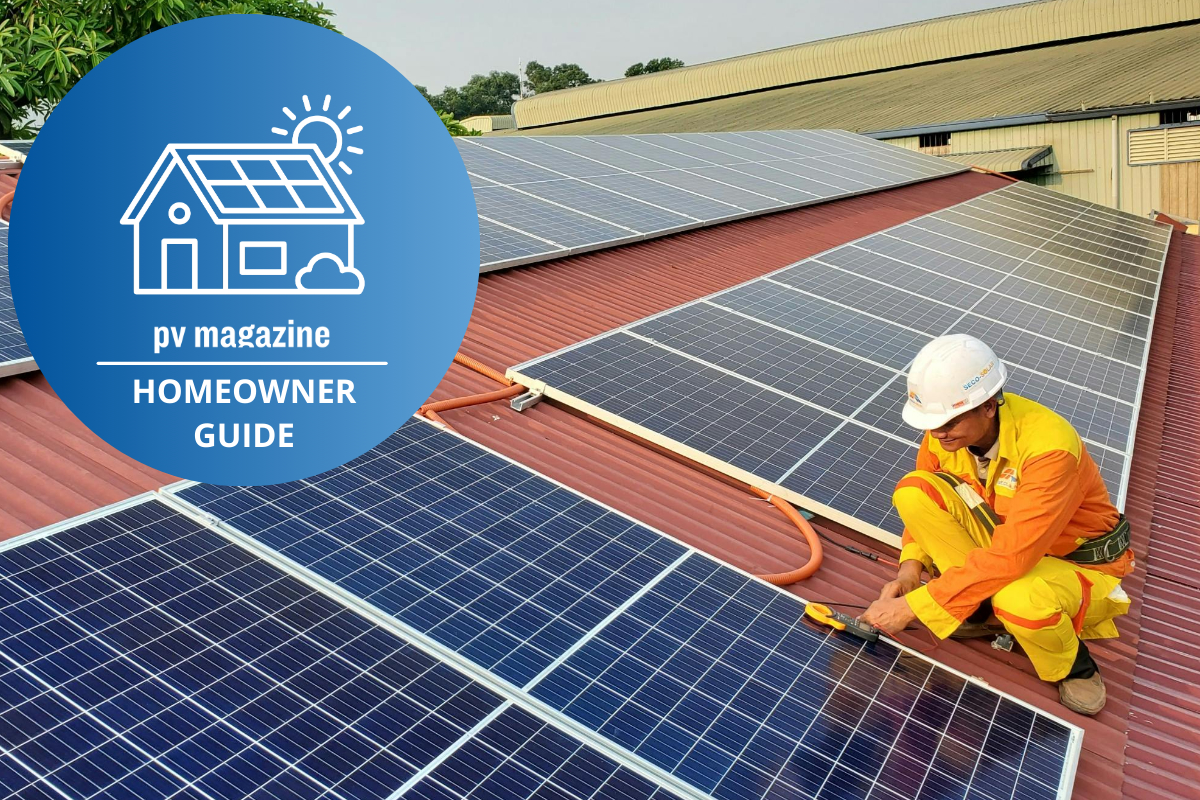
pv magazine is compiling a guide to home solar installations, aimed at those who are interested in installing but are new to the market and want to make an informed decision. We have spoken to associations, installers and industry specialists in major solar markets across the globe to compile best practice guidance and advice that aims to be applicable to home solar installations anywhere in the world. The first part of the series aims to help homeowners looking to embrace PV identify the best installers on the market.
Are you considering installing solar panels on your home but unsure of the best way to proceed?
Installing home solar can bring numerous benefits, including a reduction in energy bills, an increase in the value of your home and in some countries, can allow you to sell energy back to the grid. But it’s important to ensure you have the right information before committing to the installation to ensure it’s a worthwhile investment.
The first in this series of four articles will cover key points to consider and common mistakes to avoid during your search for an installer.
Top tips when searching for the right solar installer
When searching for an installer, it’s important to consider their experience, reputation and qualifications and ensure they are licensed, insured and have worked with the solar system that is right for your home.
Camille Tarrieu, a residential solar specialist from France’s Syndicat des Energies Renouvelables, said it is important to know that the installer will take charge of all administrative processes. Installing home solar will require compliance with any local regulations in place and depending on the country you live in, it may be necessary to secure a permit or grid connection. Reputable solar installers will typically handle these processes, but it is important to confirm this.
Transparency is also key. Italia Solare’s Cecilia Bergamasco suggested that when receiving a quotation from a prospective installer, you should ensure each cost item is detailed to avoid future surprises. This will also give you knowledge of what to expect through the process and help ascertain if an offer appears too good to be true. “A good installer provides a competitive offer but is also willing to explain in detail the system’s features and the various financing or incentive options available,” Bergamasco added.
Several sources, including Joshua Buswell-Charkow, Deputy Director of the California Solar & Storage Association, and Brazil’s ABSolar CEO Rodrigo Sauaia, recommended homeowners acquire price quotes from at least three prospective, qualified installers to compare offerings and timescales.
While price will naturally be on the mind of most prospective buyers, several sources said to pv magazine that the quality of the solar system should not be overlooked, as this can significantly impact performance and ultimately payback. Sauaia recommended consideration of not just the equipment and components of the solar system but also the quality of the installation process itself. Asking questions about the quality of the components used and checking for certifications and quality check labels can help with this.
Sauaia also said it is important to ask about after-sales and maintenance support. “Although a solar PV system is almost maintenance free, it is important after some time to do a check-up of the system to be sure that everything is working in order,” he explained.
Finding out warranty details is also key. Warranties may cover the product, its performance and the installation separately, so if unsure, it is advisable to ask installers to break this information down.
Jacopo Piccagali, Project and Policy Officer at SolarPower Europe, added that homeowners based in the EU have the right to energy sharing. “This means that you can sell your excess solar energy to your neighbor or someone who lives nearby. If you are not able to install solar panels on your own home, you may also be able to buy solar energy from someone close by,” Piccagali explained. Such information should be available on your local distribution network operator’s website.
Red flags to avoid when searching for the right solar installer
Sources told pv magazine they would recommend homeowners only buy from reputable, certified installers. Several also warned against choosing an installer based only on the lowest quote. Ultimately, if an offer is too good to be true, it almost certainly is.
Choosing an installer based purely on price may also mean you are compromising both the quality and safety of an installation. “Quotes that are far below market rates should be approached with caution, as they often indicate the use of inferior materials or shoddy workmanship,” explained Sinethemba Mnguni, Junior Technical Specialist at South Africa’s Solar PV Industry Association (SAPVIA). “This can lead to serious problems such as leaking roofs or even electrical hazards.”
Ahmad Taha, Chief Marketing Officer of Tanzania-based AG Energies Company Ltd, added that installers who do not clearly explain their pricing should be considered red flags, alongside those using subpar equipment or promising unrealistic energy savings. Spain’s UNEF Technical Director, Héctor de Lama, explained that the datasheet of the components that are going to be installed should be shared alongside the budget. He added the installer should also include technical drawings of the installation design and logistical details.
Homeowners should also be wary of high-pressure sales tactics, as this often indicates something is unsavory about the offer. “Cold callers or door-sellers often offer urgent deals. You should not sign up for anything on the spot and should take time to explore the options available to them,” a spokesperson from UK-based MCS Certified said. “Scammers may pretend to be from genuine installers. Always check their credentials,” the spokesperson added.
Unfortunately, scams do happen in the solar industry. To avoid them, Bergamasco suggested avoiding an installer without a physical address or established market presence, and recommended homeowners do not enter an installation deal without a clear and detailed contract.
Several sources highlighted failing to fully review the terms of the contract as another common mistake. Others warned against using installers that do not have the necessary certifications, or whose installation procedures are not compliant with legislation in place in their country. A source from the residential Chinese market added that not verifying the installer’s qualifications is another common issue to avoid.
To help ensure you do not fall foul of any of the above mistakes and red flags listed by the industry specialists, pv magazine will cover where to search for an installer and how to verify the information you find in the next part of the series.
This content is protected by copyright and may not be reused. If you want to cooperate with us and would like to reuse some of our content, please contact: editors@pv-magazine.com.
Source link


